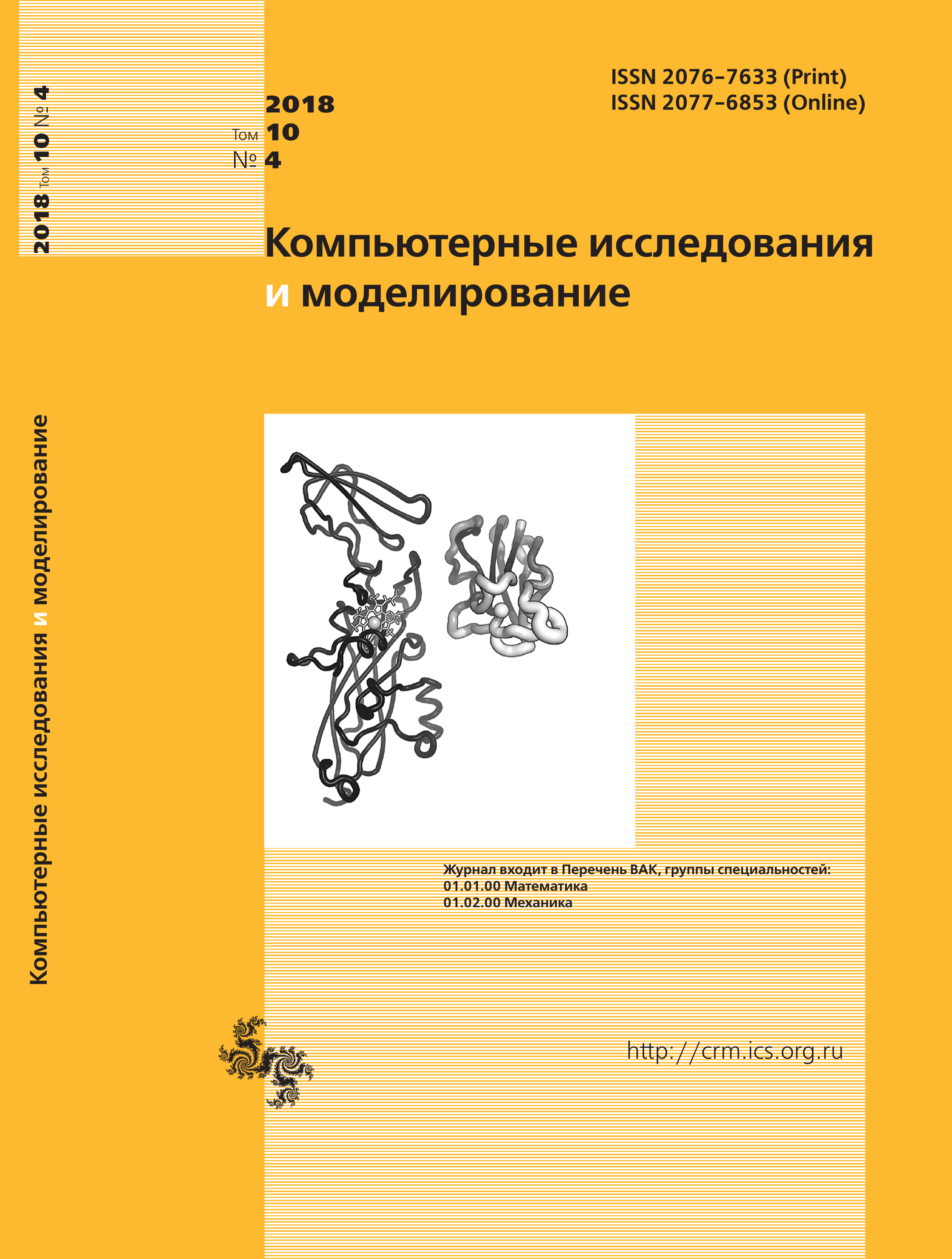All issues
- 2025 Vol. 17
- 2024 Vol. 16
- 2023 Vol. 15
- 2022 Vol. 14
- 2021 Vol. 13
- 2020 Vol. 12
- 2019 Vol. 11
- 2018 Vol. 10
- 2017 Vol. 9
- 2016 Vol. 8
- 2015 Vol. 7
- 2014 Vol. 6
- 2013 Vol. 5
- 2012 Vol. 4
- 2011 Vol. 3
- 2010 Vol. 2
- 2009 Vol. 1
On contact instabilities of viscoplastic fluids in three-dimensional setting
The Richtmyer–Meshkov and the Rayleigh–Taylor instabilities of viscoplastic (or the Bingham) fluids are studied in the three–dimensional formulation of the problem. A numerical modeling of the intermixing of two fluids with different rheology, whose densities differ twice, as a result of instabilities development process has been carried out. The development of the Richtmyer–Meshkov and the Rayleigh–Taylor instabilities of the Bingham fluids is analyzed utilizing the MacCormack and the Volume of Fluid (VOF) methods to reconstruct the interface during the process. Both the results of numerical simulation of the named instabilities of the Bingham liquids and their comparison with theory and the results of the Newtonian fluid simulation are presented. Critical amplitude of the initial perturbation of the contact boundary velocity field at which the development of instabilities begins was estimated. This critical amplitude presents because of the yield stress exists in the Bingham fluids. Results of numerical calculations show that the yield stress of viscoplastic fluids essentially affects the nature of the development of both Rayleigh–Taylor and Richtmyer–Meshkov instabilities. If the amplitude of the initial perturbation is less than the critical value, then the perturbation decays relatively quickly, and no instability develops.When the initial perturbation exceeds the critical amplitude, the nature of the instability development resembles that of the Newtonian fluid. In a case of the Richtmyer–Meshkov instability, the critical amplitudes of the initial perturbation of the contact boundary at different values of the yield stress are estimated. There is a distinction in behavior of the non-Newtonian fluid in a plane case: with the same value of the yield stress in three-dimensional geometry, the range of the amplitude values of the initial perturbation, when fluid starts to transit from rest to motion, is significantly narrower. In addition, it is shown that the critical amplitude of the initial perturbation of the contact boundary for the Rayleigh–Taylor instability is lower than for the Richtmyer–Meshkov instability. This is due to the action of gravity, which helps the instability to develop and counteracts the forces of viscous friction.
Copyright © 2018 Doludenko A.N.
Views (last year): 19.Indexed in Scopus
Full-text version of the journal is also available on the web site of the scientific electronic library eLIBRARY.RU
The journal is included in the Russian Science Citation Index
The journal is included in the RSCI
International Interdisciplinary Conference "Mathematics. Computing. Education"







